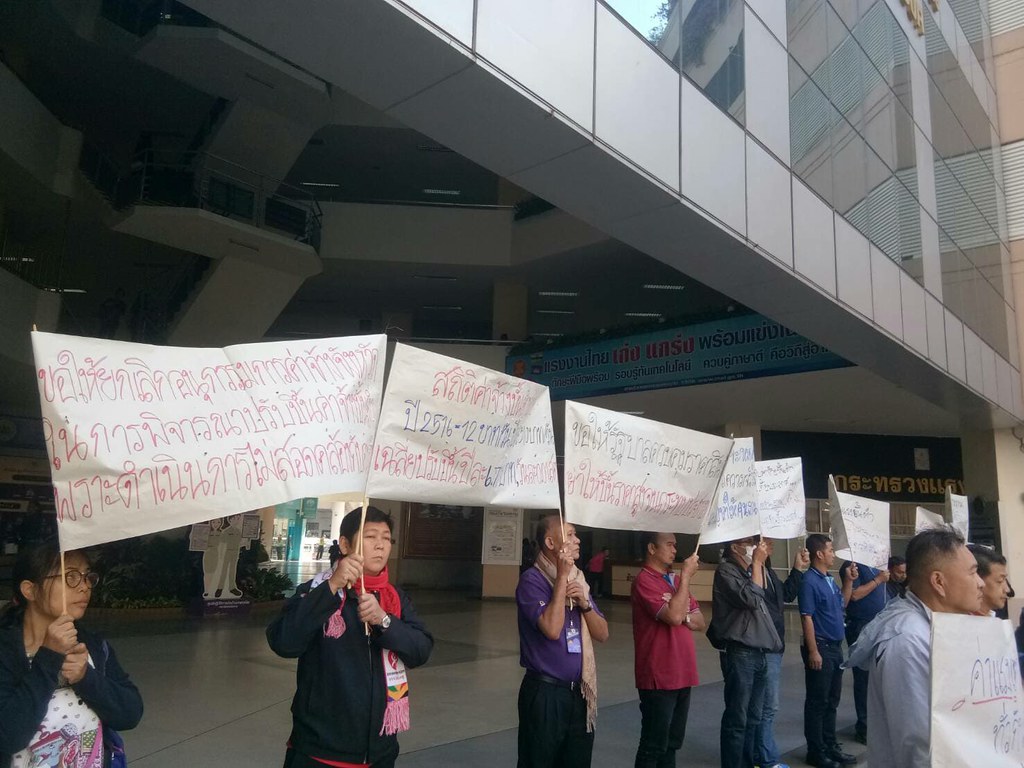Due to the higher cost of living, a nationwide network of Thai labourers has urged the Labour Ministry to increase the national minimum wage to 360 baht per day. The rate has remained almost unchanged for five years.
On 20 December, more than 20 labourers from the Thai Labour Reconciliation Committee (TLRC) gathered at the Ministry of Labour to read a statement demanding an increase in the national minimum wage from 300 to 360 baht per day by next year. The group also urged the ministry to apply the same minimum wage across the country.
Currently, the minimum wage in each province differs depending on the rate set by the Ministry’s Provincial Minimum Wage Committee (PMWC) (though these rates must be at least 300 baht per day). The TLRC also urged the ministry to abolish this committee.
The TLRC stated that a Thai worker must pay approximately 225 baht in debt repayments per day due to the increasing cost of living. 300 baht per day is insufficient for workers to sustain their lives, it said.
Pol Gen Adul Saengsingkaew, the Labour Minister, responded that the Ministry will consider the demand, but that it must also assess the potential impact on businesses.
The Permanent Secretary of the Labour Ministry Jarin Jakkapak told the media that the Ministry would increase minimum wages nationwide by next year. But he opposed increasing pay to the same rate in every province, reasoning that costs of living vary. He insisted that the Ministry let the PMWCs set the minimum wage in each area.
On 1 January 2013, Yingluck Shinawatra set the minimum wage at 300 baht per day nationwide, but the rate has remained almost unchanged ever since. The junta has also made various efforts to abolish the policy. One prominent example is the 2017 Constitution’s section on labour rights. The junta’s charter drafters replaced the words “fair pay without discrimination” with the term “wages in accordance with living conditions”.
Butsayarat Kanchanadit, an activist from the Thai Labour Solidarity Committee, wrote in
an article that the replacement of the expression “fair pay” with “in accordance with living conditions” might lead to the end of a nationwide minimum wage rate.
“Using the expression ‘in accordance with living conditions’ carries the risk of being interpreted that earning a living in each locality has unequal costs and so the minimum wage rate of workers in each locality should not be equal,” said Butsayarat.

